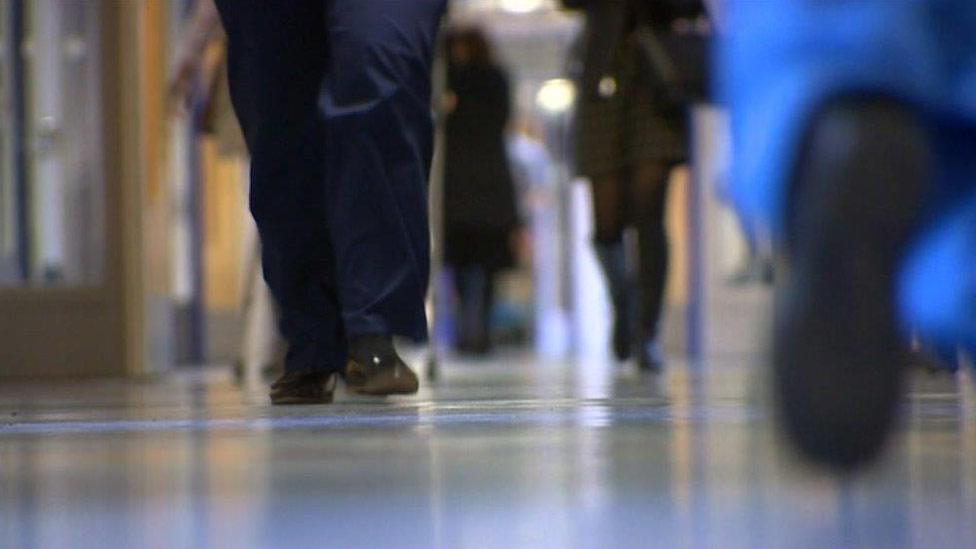'Don't be a martyr': Winter health warning for sepsis
- Published
Dr Tom Connor, who works with Public Health Wales, explains more to Derek Brockway
People are being urged to not be "martyrs" if they start experiencing potentially deadly symptoms this winter.
GPs have warned patients with coughs and colds to stay away from surgeries - with cases at a seasonal high.
There are concerns a lack of education on how to spot warning signs of sepsis could lead to people staying away.
An estimated 1,800 people in Wales die a year from sepsis, which can be mistaken for influenza early on.
Scientists at Cardiff University's Systems Immunity Research Institute (SIRU) believe education is crucial to make sure people get treatment in time to help save their lives.
Treating and preventing sepsis was the focus as Welsh weatherman Derek Brockway visited the team as he explored how his own father Cliff died of sepsis in 2015.
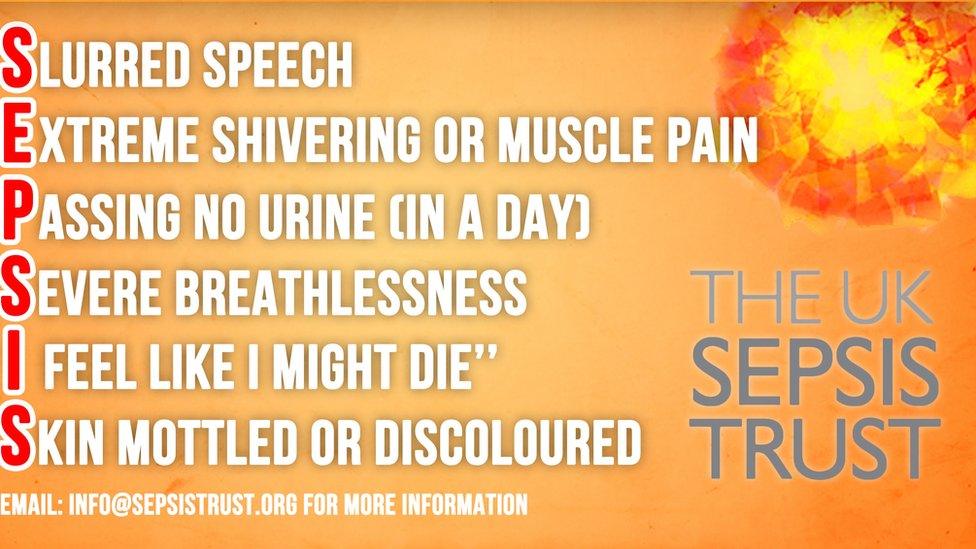
Early symptoms can be mistaken for influenza or other infections but without early treatment, sepsis can be fatal - causing shock and rapid organ failure - and every hour can count.
Dr Tom Connor, a microbiologist for SIRU and honorary consultant with Public Health Wales, said people should look out for warning signs including dizziness and shortness of breath.
"As far as public perception goes, we are told quite often not to bother the hospital, not to go to A&E with minor problems and it can be difficult to know what is a minor and what is a major problem," he told BBC Wales.
"In the case of sepsis and bacterial infections there are warning signs, that if you see them you should go to the doctor.
"You shouldn't be there thinking I'm going to be a martyr, I'm going to see if it clears up."
Dr Connor said elderly people may not know when they are ill and may not spot that they had an infection.
Part of his work alongside PHW is looking at educating people on how to spot the warning signs for blood infections, including GPs, care home staff and district nurses.
Dr Jane Fenton May, vice chairwoman of the Royal College of GPs in Wales, said people should monitor symptoms and seek advice if they were worried.
"It is a difficult call," said Dr May, who said waking up with a sore throat or cold was very different to the debilitating symptoms which could indicate sepsis.
"It is best to get advice rather than rock up to casualty, you may just end up sitting in a waiting room and deteriorating there," she said.
Dr David Bailey, deputy chairman of BMA Cymru Wales GP Committee, said educating people on whether to go to the pharmacist, doctors or A&E needed to be "high on the agenda".
About 1,200 patients a year are hospitalised with sepsis in the Cwm Taf health board area which manages services in Merthyr Tydfil and Rhondda Cynon Taff.
The board has introduced "disposable sepsis boxes" which contain medicines and equipment needed to start the treatment of sepsis quickly.
Assistant director of operations Kath McGrath said the hospitals were currently working under "extreme pressure" levels, but if people suspected they had sepsis they should dial 999 and call for an ambulance.
"Our advice to patients is to always choose the most appropriate health care service for their needs," she said.
"This will help us ensure that patients with life-threatening injuries or illnesses such as sepsis can be treated as quickly as possible as soon as they arrive at the emergency department."
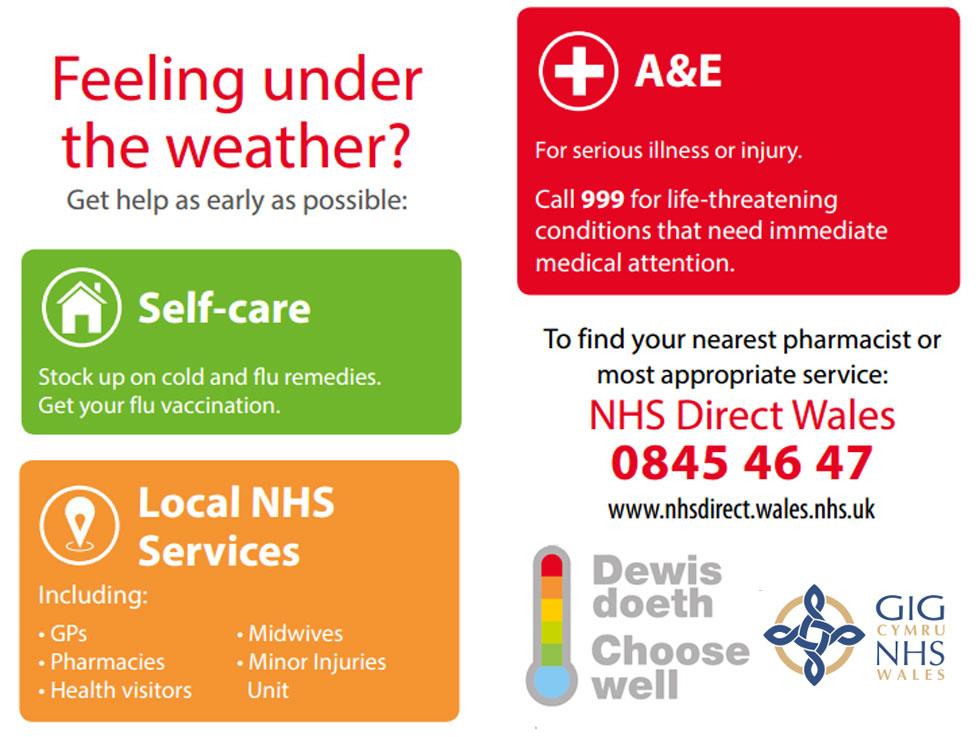
Abertawe Bro Morgannwg University Health Board, which looks after the NHS in Swansea, Bridgend, Neath and Port Talbot, said it was not aware of any concerns of sepsis not being identified as a result of their doctors telling people to stay away from surgeries if they have coughs or colds.
"The information our doctors have been providing informs people of when they don't need to seek medical attention, when they should seek it, and, if they are unsure and need advice, to contact the 111 urgent care service," a spokeswoman said.
In north Wales, Betsi Cadwaladr University Health Board said it regularly issued advice to the public but that people should seek further advice if they felt their symptoms were getting worse.
Hywel Dda University Health Board area, which covers Carmarthenshire, Ceredigion and Pembrokeshire, said it was continuing to experience significant pressures and that it was working hard to alleviate it.
Aneurin Bevan, Cardiff & Vale and Powys health boards were also contacted for comment.
Terence Canning, Welsh director of the Sepsis Trust, said the key to fighting sepsis was educating people about spotting the signs.
"Some people will have sepsis and you will not need to take a blood test as they are so obviously ill: science will not help these people," he said.
"But there are some people that science can help if they are seen early."
- Published17 January 2017
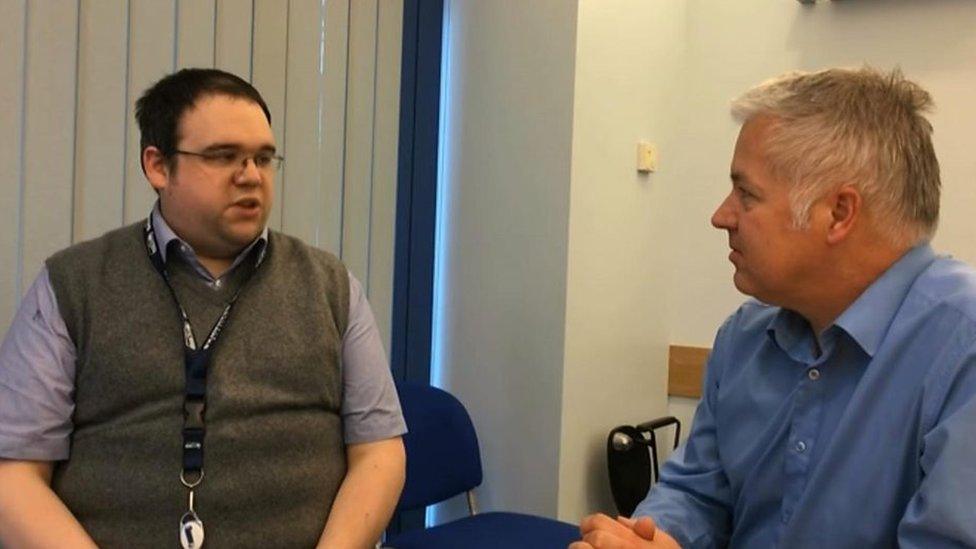
- Published28 November 2016

- Published28 November 2016
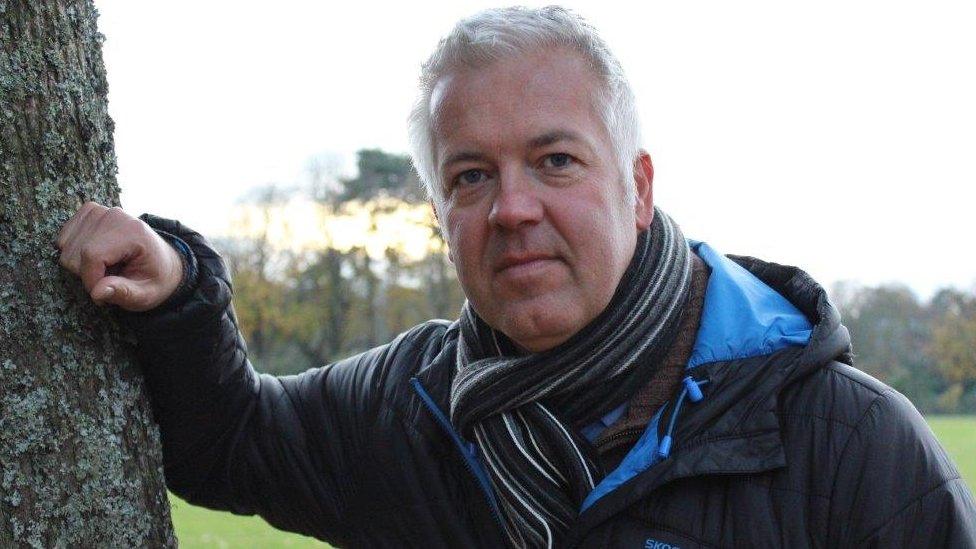
- Published26 January 2016

- Published6 January 2017

- Published17 November 2016
